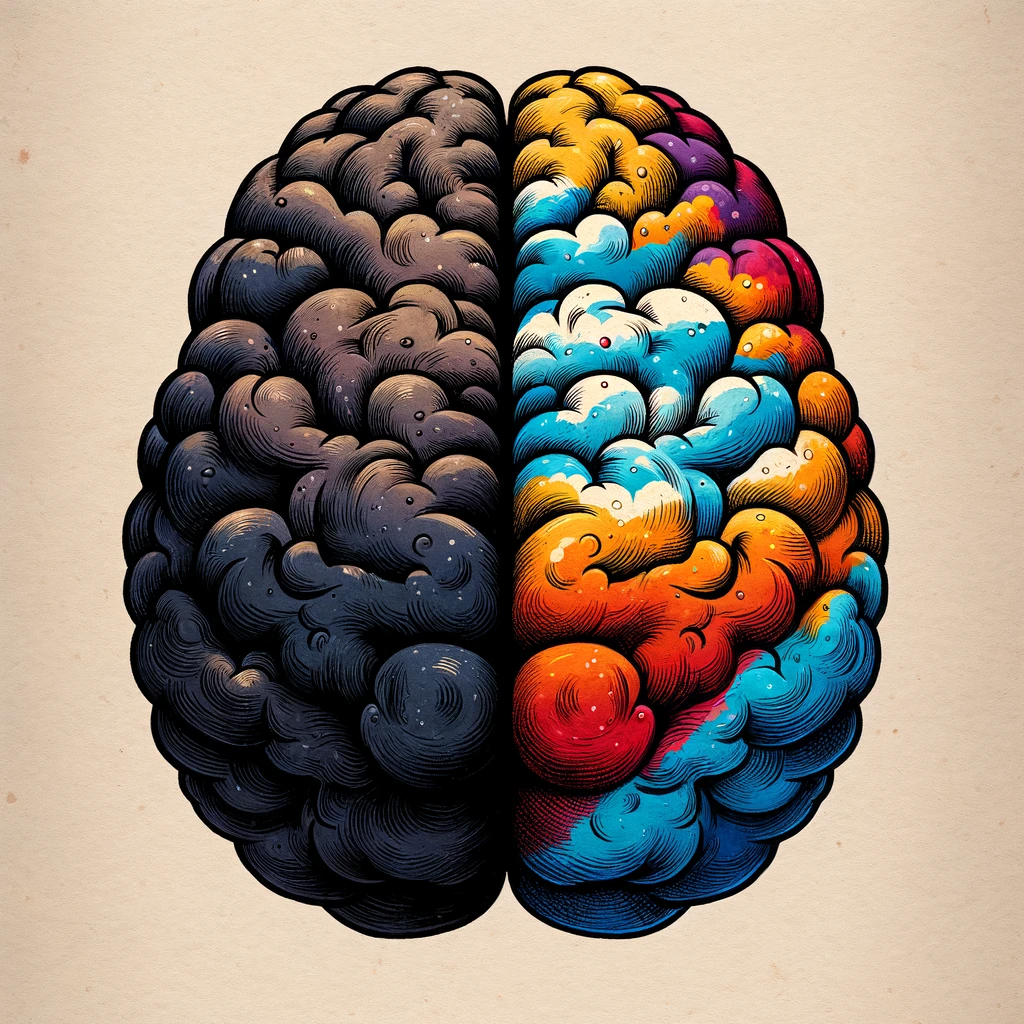Have you ever felt your cheeks burn with embarrassment over something that, frankly, shouldn’t have made you bat an eyelid? Maybe you felt a twinge of embarrassment for someone tripping in a movie, or you blushed when someone else got a fact wrong during a presentation—even though you weren’t involved at all.
Well, you’re not alone in this weird but totally normal human experience. Let’s dive into why we sometimes feel embarrassed for absolutely no reason and uncover some fascinating insights together!
Understanding Embarrassment: A Psychological Perspective
Embarrassment is that uncomfortable feeling we get when we perceive that we’ve violated a social norm or when our self-image is threatened in front of others. But what’s really happening in our brains during these moments? Psychologically, embarrassment is tied to our awareness of how we are seen by others. When we think we’ve somehow lowered our standing in the eyes of our peers—even if it’s just in our heads—our body reacts. This reaction can include blushing, sweating, or even a desire to hide.
Why, though, would we feel this when we haven’t done anything embarrassing ourselves? It comes down to our brain’s intense focus on social values and norms. Sometimes, just the idea of a social faux pas, whether real or imagined, can trigger this response. Our brain is essentially over-calibrating, trying to keep us in line with what it thinks others expect of us.
The Role of Empathy and Mirror Neurons
Empathy and Its Effects
Empathy allows us to understand and share the feelings of others, and it plays a huge role in why we might feel embarrassed for no apparent reason. Our brains contain something called mirror neurons, which help us experience what others are feeling. When you see someone else going through an embarrassing situation, your mirror neurons fire up, making you feel a slice of their embarrassment as if it were your own.
Mirror Neurons at Work
This neurological mimicry can be so strong that we actually experience secondhand embarrassment. For instance, when we watch a character in a sitcom get into a sticky situation, we cringe. Our brains process these vicarious emotions in much the same way as if we were the ones experiencing the situation firsthand. It’s a fascinating and sometimes awkward part of how we connect with others and the world around us.
Cognitive Dissonance and Social Anxiety
The Clash of Actions and Beliefs
Cognitive dissonance occurs when our actions don’t align with our beliefs, leading to a sense of discomfort. In terms of feeling embarrassed for no reason, imagine you’re in a situation where you think you’re supposed to act a certain way due to social norms, but for some reason, you can’t or don’t want to conform. This mismatch can make you feel embarrassed, even if nothing embarrassing has actually happened.
Social Anxiety’s Role
For those with social anxiety, these feelings are amplified. The fear of being judged or acting inappropriately can be so pervasive that it triggers feelings of embarrassment preemptively. It’s as if your brain is on high alert, watching for any possible slip-up, ready to flood you with embarrassment at the slightest perceived misstep.
Cultural Influences on Embarrassment
Embarrassment isn’t just a personal feeling; it’s deeply influenced by cultural contexts. What’s considered embarrassing in one culture may be completely acceptable in another. For instance, in many Western cultures, public recognition might make someone feel a bit sheepish but generally isn’t a big deal. Contrast that with more collectivist societies, where standing out can often lead to feelings of acute embarrassment due to the cultural emphasis on conformity and group harmony.
Variations Across Cultures
These cultural differences stem from varying beliefs about self-expression, privacy, and social harmony. In Japan, for example, causing inconvenience to others can lead to intense feelings of embarrassment, reflecting the cultural value placed on social harmony. In contrast, American culture often celebrates individual achievement and assertiveness, which can mitigate feelings of embarrassment in situations where one stands out or takes charge.
Cultural Conditioning and Embarrassment
From a young age, we’re conditioned by our culture to understand what is and isn’t acceptable behavior, which shapes our thresholds for embarrassment. This conditioning can explain why something perfectly normal in one cultural setting can trigger a deep feeling of embarrassment in another. Understanding these cultural nuances is key to deciphering why we sometimes feel embarrassed for no apparent reason, as we might be subconsciously reacting to deeply ingrained cultural norms.
Strategies to Manage and Overcome Unwarranted Embarrassment
Mindfulness and Self-Awareness
One of the most effective ways to manage unwarranted feelings of embarrassment is through mindfulness. By being present and aware, you can recognize when you’re starting to feel embarrassed for no real reason and take steps to calm your mind. Mindfulness practices help you observe these feelings without judgment, allowing them to pass more quickly and with less emotional impact.
Cognitive-Behavioral Techniques
Cognitive-behavioral techniques can also be incredibly helpful. These involve identifying and challenging the irrational thoughts that often underlie feelings of embarrassment. For example, if you find yourself feeling embarrassed about laughing too loudly in a social setting, you might challenge this by asking yourself what evidence you have that others actually judged you negatively for it.
Embracing and Accepting Embarrassment
Lastly, embracing and accepting that embarrassment is a part of life can be a powerful attitude shift. Everyone feels embarrassed from time to time—it’s a universal experience that connects us to one another. By accepting these feelings as normal and not something to be feared, you can reduce their power over you and handle them with grace and humor.
Feeling embarrassed for no reason can be a puzzling and sometimes frustrating experience. However, understanding the psychological, cultural, and emotional factors that contribute to these feelings can provide valuable insights into human behavior and social interaction.
By employing strategies like mindfulness and cognitive-behavioral techniques, you can better manage these feelings and embrace the inevitable awkwardness of life with a little more ease and a lot less red in the face.
















